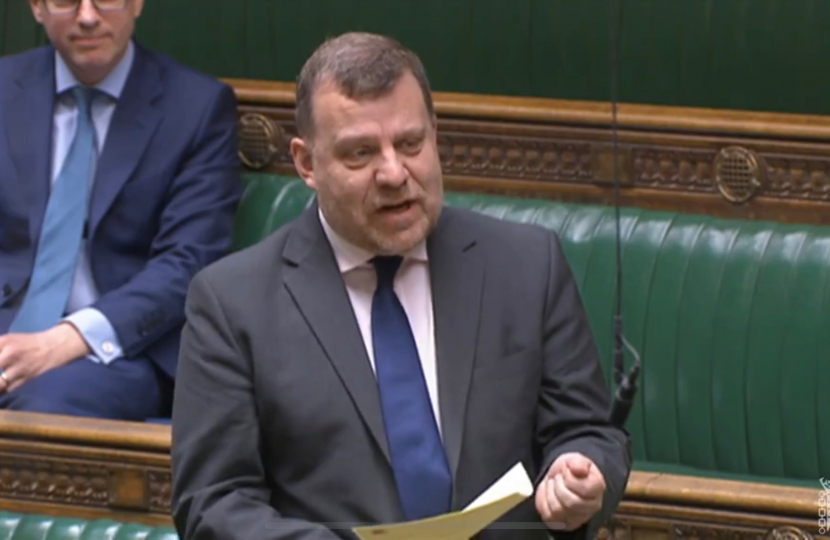
Warrington South MP Andy Carter has supported the next stage of the Government’s plan to tackle sewage pollution by further strengthening legal requirements. In August 2022, the Government set out its plan which requires the largest infrastructure programme in water company history to tackle sewage overflows. The 60 page plan prioritises investments in priority sites including protected habitats and bathing waters. Since then £1.6billion investment has been brought forward to speed up vital water infrastructure projects, cutting thousands of overflow spills each year.
As part of the Government’s current Plan for Water in the North West of England, United Utilities will receive £700million funding towards reducing storm overflow sewage discharges across 135 storm overflows, resulting in 7,800 spill reduction per annum, alongside £78million for reducing sewage discharges into bathing waters across 15 storm overflows and £19million for reducing sewage discharges into Lake Windermere. £118million has also been allocated to United Utilities for nutrient reduction at wastewater treatment works to improve water quality, protect natural ecosystems and continue to facilitate development in the region.
Ministers also reconfirmed that they will be introducing unlimited penalties so that polluters pay for their impact on the environment, with funds now being reinvested into rivers and water bodies. Since 2010 United Utilities have paid £3.2million across 32 prosecutions and fines from the Environment Agency. The next step will place the target in the Sewage Overflow Reduction Plan on a statutory footing.
Andy Carter MP commented: “I’m pleased to have endorsed the Government’s Plan for Water which will see the North West allocated further funding from DEFRA to tackle sewage discharges and improve water quality across our region, with the threat of unlimited penalties for water companies who fail to clean up their act. We’re all rightly disgusted whenever we see reports of sewage overflows entering our rivers but unfortunately, owing to the age and extent of the UK’s sewer network, there’s no cheap or easy fix to the problem as Labour or the Liberal Democrats would have you believe – and oddly their MPs abstained despite calling for a debate in Parliament.
“Time and time again these opposition parties like to play politics by pretending that we’re doing nothing to tackle sewage discharges, which couldn’t be further from the truth. Everything Labour has put forward – monitoring, requiring plans to be published, setting legal targets and introducing fines – the Government has already committed to or gone beyond, and the Liberal Democrats’ proposed tax on water companies would take over 500 years to fund their sewage overflow plans. When Labour were last in power around 7 per cent of overflows were monitored and they agreed a programme for the water companies to self-regulate. By the end of the year all overflows will be monitored and self-regulation has ended. We have a comprehensive and realistic plan of action that will deal with the problem, we’re getting on with addressing the issues.”
Secretary of State Therese Coffey MP said: “It was a Conservative government that introduced 100 per cent monitoring of storm overflows. We’ve brought forward stronger regulations, tougher enforcement and the largest water infrastructure programme in history – an expected £56billion investment – and we will make fines unlimited so that the polluter always pays.”
The Environment Secretary has written to water companies requiring a plan on every overflow on her desk by the end of June. This builds on work to introduce mandatory monitoring, which is up from just 7% in 2010 to 100% by the end of this year. Thanks to this monitoring, regulators are undertaking the largest investigation into water companies in their history related to illegal sewage dumping, building on record fines of £141m secured since 2015.
The additional funding set for the North West comes on top of £663million currently being spent on a range of projects to improve the environment through the Water Industry National Environment Programme (WINEP). This includes £380million on reducing the amount of phosphorus discharged from wastewater treatment works in the region, £44million to support the delivery of long-term drought resilience, £15million to develop nature-based solutions through partnership working and £44million at Bury to improve the river environment by increasing sewer capacity.



